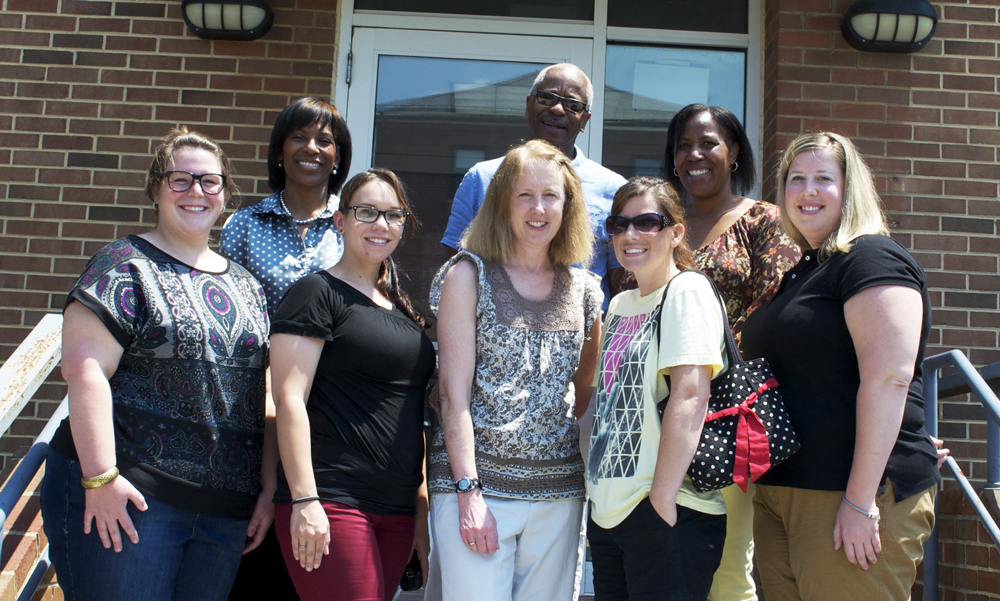Workshop highlights partnership between Virginia Tech and Achievable Dream Academy

The statistical odds are stacked against these students. All of them qualify for free or reduced-price lunches. Most represent minority groups and many live in a single-parent home. Normally when the cards line up this way, college is rarely seen as an obtainable reality.
While the stats describe the student body at the Achievable Dream Academy in Newport News, Va., the dream of going to college is not only nurtured there but also expected of the students – and it is working. More than 90 percent of academy graduates have gone onto college.
Virginia Tech developed a partnership with the Achievable Dream Academy in 2009 in an effort to help the academy promote the success of first-generation, low-income, and underrepresented students. To support the collaboration, Virginia Tech committed to providing resources to the school, including peer and faculty mentoring, skills development workshops, professional development support, technology sharing, and financial support for academy graduates who enroll at the university.
As part of the alliance, Virginia Tech recently hosted a five-day immersive workshop for five teachers from the academy. The goal was to help the teachers develop and implement curricular changes to better prepare academy students for the writing demands expected of them in college.
Recent academy graduates spurred the idea. “Graduates told leadership at the academy that they enjoyed their college English classes, but that the writing expectations were different from what they had practiced,” said Sheila Carter-Tod, associate professor of rhetoric and writing in the Department of English and director of the composition program. “Instead of training individual students, we decided to focus our efforts on the teachers who could actively change their courses to improve their current and future students’ readiness for college-level work.”
Carter-Tod applied for a Department Diversity Grant offered through the College of Liberal Arts and Human Sciences to fund the workshop. The program is a joint venture between the Department of English and the Student Success Center.
Each of the participating teachers – one from the middle school and four from the high school – submitted a proposal for how they will implement the curricular suggestions from the workshop. Next spring, Carter-Tod and the Student Success Center will visit the academy to follow-up with each of the teachers.
If the project is a success, similar programs could be implemented for other subject areas such as math and science.
The partnership with the Achievable Dream Academy is one of dozens of precollege and pipeline initiatives formed at Virginia Tech through the Student Success Center. “Partnerships are important because they help us to serve the Commonwealth of Virginia community, facilitate access to higher education, and expose historically underserved communities to the incredible academic opportunities at Virginia Tech,” said Karen Eley Sanders, associate vice president for student success.
Since the alliance with the Achievable Dream Academy formed, nine of its students have enrolled at Virginia Tech.
Dedicated to its motto, Ut Prosim (That I May Serve), Virginia Tech takes a hands-on, engaging approach to education, preparing scholars to be leaders in their fields and communities. As the commonwealth’s most comprehensive university and its leading research institution, Virginia Tech offers 240 undergraduate and graduate degree programs to more than 31,000 students and manages a research portfolio of $513 million. The university fulfills its land-grant mission of transforming knowledge to practice through technological leadership and by fueling economic growth and job creation locally, regionally, and across Virginia.




